THE 10 FASTEST ANIMALS ON EARTH WATCH THE VIDEO AND READ THROUGH FOR YOURSELF AND SEE
How fast can you run? Research suggests that human beings could run as fast as 40 miles an hour—in theory—but sprint speeds average to closer to 12-15 mph. You may be thinking, “that’s not too shabby,” but as you will see, a 15 mph sprint would not be enough to win a race with any of the fastest animals on earth.
Many animals can go much faster than we can—some of them predatory. What is the fastest animal on earth?
Let’s find out.
PEREGRINE FALCON.

Peregrine Falcon Birds have something of an advantage when it comes to speed, for obvious reasons. The peregrine falcon is particularly swift, capable of reaching speeds of up to 200 mph while at a dive, making it a fearsome hunter. The rest of the time it does not fly this fast, but that hardly matters to its prey. It is the fastest animal on the planet when in a dive.
FRIGATE BIRD.
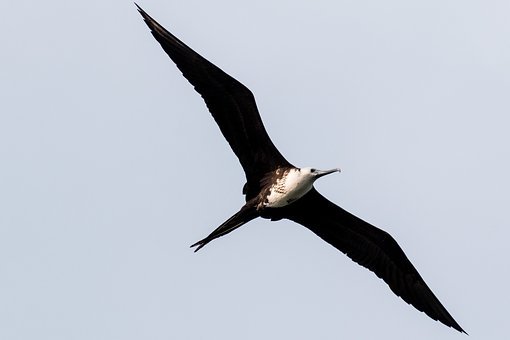
This spectacular avian makes the peregrine falcon look slow by comparison. It can reach speeds of up to 95 miles per hour—much faster than you drive on the highway. It has the largest wingspan to body weight ratio and can stay in the air for intensely long periods. Sometimes these birds do not touch down for over week at a time. How’s that for speed and endurance?
SAIL FISH.
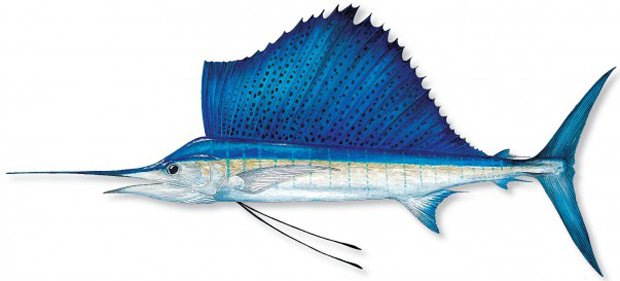
What is the fastest sea animal? That honor goes to the sail fish, which can read speeds up to 68 miles per hour—again possibly faster than you are used to driving on the highway. Can you imagine a fish racing alongside your vehicle and keeping up with you? That’s one fast sea animal. The characteristic sail is used when the fish is frightened in order to intimidate threatening animals. The rest of the time, it is kept folded up.
CHEETAH
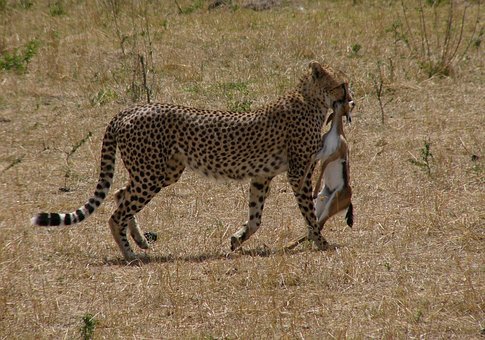
The fastest animal in the world is of course the cheetah. This animal is actually only slightly faster than the pronghorn antelope, and can reach speeds of up to 61 miles per hour. This record was set by an 11 year old cheetah in 2012 named Sarah. Unlike most of the other animals on this list, the cheetah is a predator. It represents a serious threat to animals on this list that inhabit the same geographic areas (not just grasslands, but forest environments as well). The cheetah is a sprinter, not a long distance runner, but pairs agility with speed for deadly attack runs.
Cheetahs are also very fast accelerators, and can ramp up their speed four times faster than human beings can. They can also pull to a stop extremely fast. It is also interesting to note that the speed and agility of the cheetah is not matched by strength. The cheetah is fairly fragile and will lose in most fights with other predators.
As a result, they will quickly surrender prey to competitors. An injured cheetah may not be able to run quickly, which can put its life in danger.
PRONGHORN ANTELOPE.
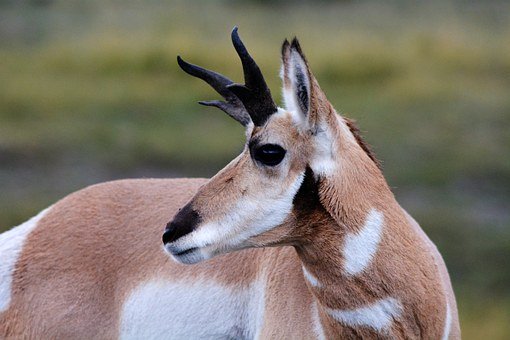
This antelope takes second place among land animals for speed. It can easily out-sprint most predators at speeds as high as 60 miles per hour. Interestingly enough, a pronghorn antelope is not actually an old world antelope, and is native to North America. Actual antelopes are quite fast as well, but not as fast as the pronghorn. Also curious is the fact that the pronghorn is far faster than the predators which inhabit North America.
This seems to indicate that it evolved its great speed at some point in the past under the threat of a now-extinct predator, perhaps the American cheetah. The pronghorn has a number of special adaptations that allow it to function at high speeds, including cushioned, pointed toes to absorb shock, and extra-large organs that assist with air intake.
BLUE WILDEBEEST
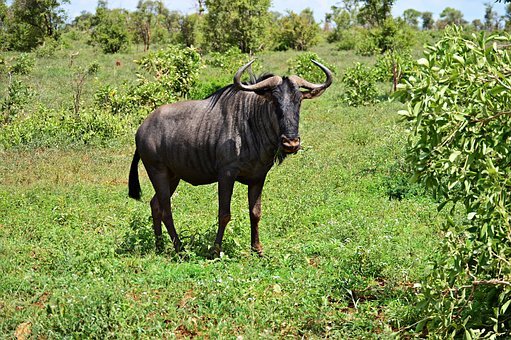
Another swift land animal which also inhabits the plains is the blue wildebeest. They are not quite as fast as the pronghorn, but are still pretty impressive at around 50 miles per hour.
LION.

Unfortunately for the blue wildebeest, the lion’s fastest speed almost exactly matches. Lions can chase down their prey at around 50 miles per hour, making them extremely deadly predators on the plains.
THOMSON’S GAZELLE
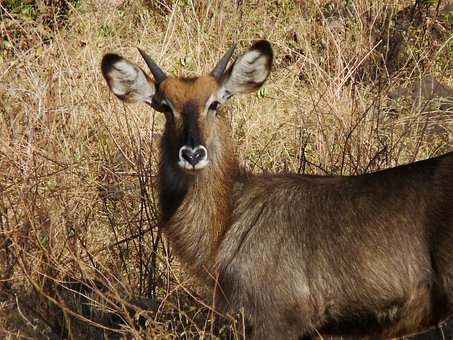
This is another creature in the same category as wildebeests and lions, also capable of running at around 50 miles per hour. Chases between lions and cheetahs and gazelles can be quite intense as a result of the close speed matching. Unfortunately for Thomson’s gazelles, they are the preferred prey of cheetahs, the fastest animal on our list.
This is another creature in the same category as wildebeests and lions, also capable of running at around 50 miles per hour. Chases between lions and cheetahs and gazelles can be quite intense as a result of the close speed matching. Unfortunately for Thomson’s gazelles, they are the preferred prey of cheetahs, the fastest animal on our list.
BROWN HARE.
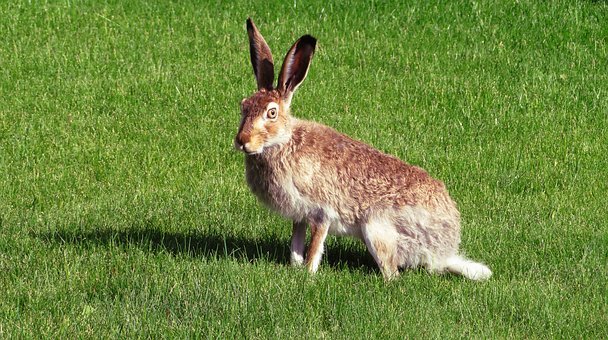
One of the smallest animals on our list is the brown hare. This little creature can run extremely fast, reaching speeds of up to 47 miles per hour. The story of the tortoise and the hare is famous for a reason. Hares really are incredibly fast creatures, and they are capable of outrunning the majority of other animals.
ELK .
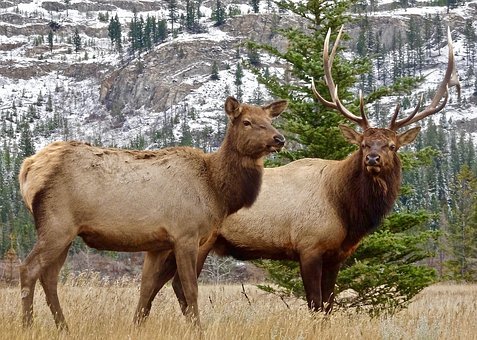
There are a number of animals which run faster than the elk, but the elk deserves a mention because it is a good deal larger and less “swift” looking than a gazelle or antelope. Elks can be quite large, but their size and build should not deceive you. The elk is capable of running at speeds as high as 45 miles per hour. Do not make an elk angry. If it charges you, it is going to win. As you can see, there are some impressively fast animals on the land, as well as in the sea and air.
These remarkable animals showcase the many different ways that creatures can adapt to fulfill the role of either predator or herbivore. While we may be at the top of the food chain thanks to our tools and inventions, we are easily outclassed when it comes to speed. Many of these creatures are as fast as the cars we have constructed to get from place to place at a reasonable pace. If that isn’t a humbling thought, what is?
@raise-me-up thank you for your massive support always good to have you here. thank you.
@rosynesn. I am honored thank you for your kind support always good to have you here. thank you
Hi @jerryfreshman
Excellent article. I subscribed to your blog. I will follow your news.
I will be grateful if you subscribe to my blog @user2627
Good luck to you!
@jny
ksi gh
nice work